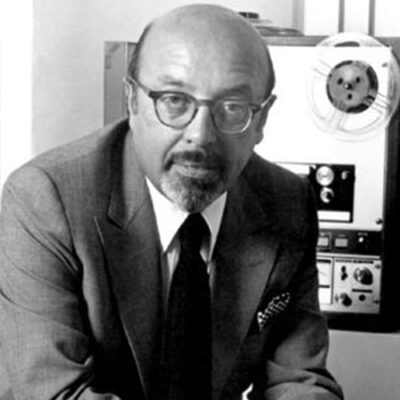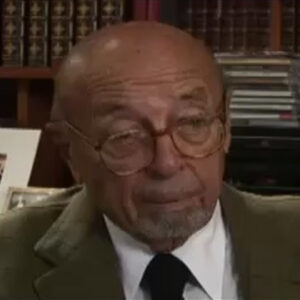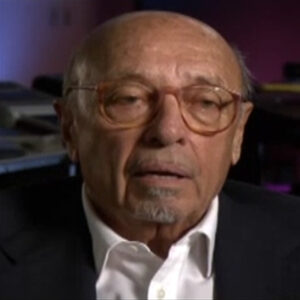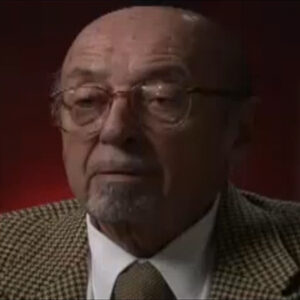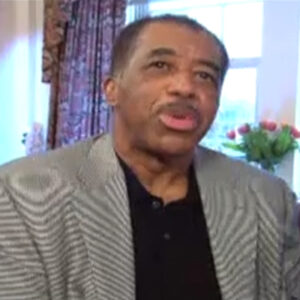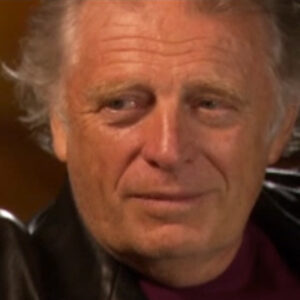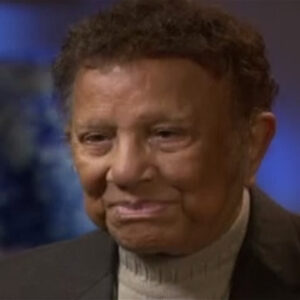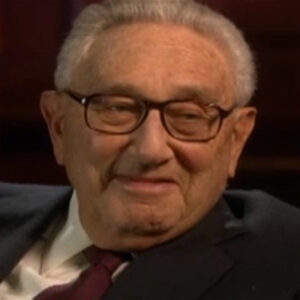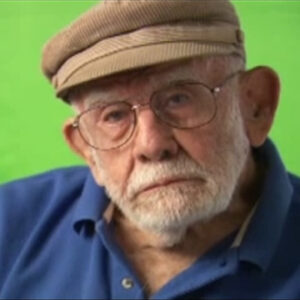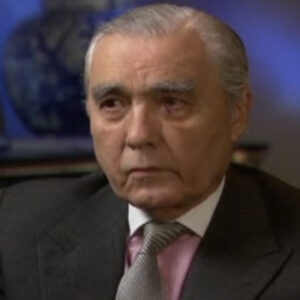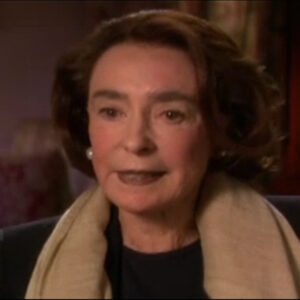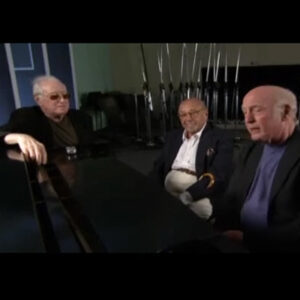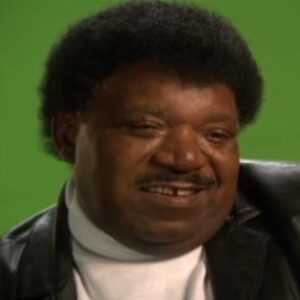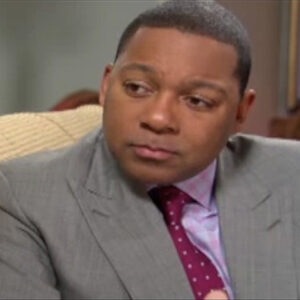M1 That’s the first song, but that’s my favorite song of your all your so so far, so far. But we don’t know what’s to come yet. Sure. But. That’s the first time I’ve ever heard you say.
F1 Yeah, and and then I remember the moment as well, I went to at the luncheon here in New York. Right? Right.
M1 I was. So I tell you, I was so taken by your performance that day as well as the whole crowd. I mean, it was just a magical moment because everybody was so moved. And, you know, it’s it’s a time of war all over the world where so many people are dying. And and you’re talking about your experiences in Kosovo, I believe.
F1 Yeah, exactly. And I think the images that are from from that particular war can be applied to any war. Now, you know, the different wars, but the images are the same.
M2 Well, I tell you, the combination of the message and the music and your performance was absolutely thrilling that day. And and I turned to the people at my table and I said, well, I’ve just heard for the first time the next day, big Atlantic star. I mean, I knew that you were there was no no way of stopping you from telling your story to a lot of people. You know, a lot of people have. A lot of people have something important to tell. Sam. Are able to do it by singing some cards, saying, well, let’s do it anyway, you know, are but you have all the all the requirements and and the intelligence and and the. Talent to be able to. Right, poetically, no, thanks.
F1 Well, I guess for me, the fortunate thing is to be able to have had a job before I was in music. You know, as a songwriter, you need experiences and your life experiences in which to draw upon and from those. Then I write down your songwriting yourself.
M2 And we all know everybody has experiences and of different types. But but but you have had more experience than most people because of your early life as a somebody in the military and as a soldier and. As an officer, I believe once you became an officer, yeah, exactly, the queen’s army.
F5 Yeah. For for a little while. Well, I’ve I’ve got a better job now. I’m very pleased for it.
M3 I’m glad to have taken me on because it’s it’s a great honor for all of us that I think to have a talented young man like you and and it’s it’s adds to to hit you at a great deal to our history. And it’s a phenomenal history. And it’s terrific thing to have you. I, I would like to ask you a couple of things. You know, when you sing a song like No Bravery. You sing it every night, don’t you? Yeah, absolutely. You sing it every night, and I just would like people who are watching this episode we’re doing right now.
M2 To think about the fact that you go to a show and that’s the only time they hear it live. Yeah. But you have to do it every day, sometimes more than once a day. Yeah, and there are all those things. It’s it’s a work is that to to be able to bring back. Yeah, I think that’s the right spirit. You have to bring it when you’ve done it.
F1 So, yeah, I know exactly what you mean. I mean, I think the main thing as a performer, one always has to remember is that as you said, it’s new to the audience every time. And for them it means you’re going to have to come up with the goods again. And in order to do that, I have to relive the moment that I wrote it. I have to relive the experience again and try and relive those images, draw upon them, because if I don’t do that, I won’t drive the audience into that emotional headspace. And so, yeah, that’s it can be Codina kind of trauma every single night, having to put yourself through that in this case, you know, a pretty sad song. Well, we also do as I have some footage from Kosovo, which we play on a big screen behind it. And I and if I ever if I ever forget where the song comes from, I can just look over my right shoulder and see some very clear images, because with every song, really as a performer, you definitely have to throw yourself back into that moment, whether it be a happy or sad memory.
M2 Yes. Well, you know, it’s a it’s a it’s it’s a chore. And of course, you know, I don’t think people understand. I know, for example, you’re here for two days in New York. And you have probably a schedule that’s unbelievable.
M4 I know you’re playing tonight and tomorrow night. Yeah, I’m going to see you tonight and I think we have a big party tomorrow night and.
M2 And then you have a lot of things to do all day, and you also have to be writing. New material for your next album here.
F5 With all these parties things, you just don’t know what to do with myself. No, you’re right. Well, there is you know, there is there is more than there’s more there’s more work than it was on the brochure that tells you something. Yeah.
M3 A lot of people think, oh, you know, a star has a big hit, become a huge star. Now, he doesn’t have anything to worry about. They don’t know how much work you have to do then, because then is the time that you have to do all the publicity and promotion, the public appearances, and you’re working all the time and you’re on the road and people want to see you now and they want to see you in Europe. They want to see you in America. They want to see you in South America. They want to see you. Thank God that they want to see you, because it’d be terrible if they didn’t. However, with all of that, you have to come up. With material, you might have had two or three years or even more in which to put together the songs you have on your first album.
F1 Absolutely. And I guess what I what I have experienced is that the job of touring and playing out in whatever country and traveling around, but the actual job of being a musician, I’d pay to do. I mean, it’s you know, it’s been my dream and it is my passion. And to do that, I’m an incredibly lucky person. The promotional side of things, as you say, you know, the early morning television shows, that’s a bit of a chore. But, you know, in order to follow the dream and enjoy my passion, that’s the hard work that one has to do. And and it’s definitely worth it. And I have to say, I’m incredibly lucky because there are some amazing musicians out there who don’t get these chances and don’t get listened to. So I am very glad for that. And yeah. And and as you say, the songwriting. Well, I suppose I have five minute spare a day and I’ll try and get a few words or notes or melodies written.
M3 Well, that’s five minutes. Let’s hope that the muse comes to you and you’re inspired to act to write something that I think the collection of songs you have on your first album. I just. Stupendous. Thank you. Many of the songs. I live with us forever. And I’m I think it’s just fantastic that that you have. Come, come upon, you have understood that this is that this is your mission and that your you are giving the world some wonderful, wonderful music to enjoy.
F1 Yeah, well, thank you. Well, for me, I guess, first and foremost, I feel very fortunate that I’ve arrived in the Atlantic family because they’re a company that’s the nurses they’ve got to look after and nurture artists and and have a family unit that will then develop in the future. So I feel very lucky that I have arrived in the right place for sure. And then as far as the future goes, I hope you’ll listen to the new songs tonight.
M2 I love you like those as much as love life on that first album. Well, I’m sure and feeling they I’d be great because you and I think you’re able to do you by you. I don’t think you would accept to put anything on that. You yourself don’t pass the.
F1 And as you know only too well, I think, you know, you make the albums first and foremost for yourself as an artist. That’s right. And if other people like them, that’s a great bonus.
M3 Well, it’s it’s it’s a wonderful thing for all of us that it’s like we’re going to really try to live up to your talents and to to do what is. Well, you know, we’re off to a great start at.
M4 And everybody in the company from Edgar Bronfman died. I mean, the first one who ever called me. Yeah, they never called him, but he called me about you very, very early, said, oh, James. I said, oh, my God. And that I heard him at that event, which was in honor of Eddie, I think. And it was just a thrill. So.
F1 No, thank you. Thank you. It’s been a great start, looking forward to the future.
F2 James, I want to I’m going to ask you just a couple of questions, a lot of people who you’ve interviewed who have become that just just something very simple, the American audience may not know as much about you and your background about what happened, how you came to issue.
F3 Kind of I know you went to Sandhurst and how did this all kind of come about? Is it possible for you to just tell? I ask him that. I would appreciate it if you would wouldn’t do that to get that out of the.
M5 I know that you come from a military background and as a young man, you you went to military schools and when did you first start to become interested in music? When you first started to play an instrument?
F1 Yeah, well, I started playing musical instruments from a very early age, actually, and I blame my mother for that. She forced me to learn things like the violin when I was five and the piano when I was seven. And I really didn’t enjoy it at all. I just liked classical music. And I think I played Mozart’s Sonata in F Sharp Minor approximately a thousand times and I really didn’t have fun. But then at school age 14, I saw someone playing the electric guitar and immediately I saw freedom in that and I found an expression in that. So I pick one up and he showed me a few chords. And 14 is a good age, isn’t it, where you start having a great you know, you’ve got a lot to say and I know how to say it. You don’t enjoy school or your parents. And really, that’s when I found that I really needed to express myself somehow. And music was the way and and I thought, yeah, I’m going to do this. And I really didn’t. When I reach old age and say I never followed my dreams. So that was my driving force to say I will get out there and I will be a musician.
M2 And then you. When did you first start playing keyboard?
F1 So when I play the piano since I was seven, but then I really kind of gave it up actually I suppose when I started playing the guitar. And then after again, a few years of playing a guitar and writing songs, you know, as a piano around. And I thought, well, maybe I can take my my guitar songs and try them out on a piano and and rediscover the piano as an instrument. So now it’s fun that I can I can write on both and try them out on both and and see which instrument draws things out in a different way. That’s great.
M1 Tell me, when you’re a young man, when you’re in your early teens, who are your favorite singers?
F1 Well, at that age I didn’t have much at home, so I was kind of stealing music from other people in a in my house and saying, can I borrow your tape for a while, then lend it to me for a while and listen to that. And it’ll be people like David Bowie, Led Zeppelin, Pink Floyd, a bit of the Pixies I, I don’t think I sound like any of them now, but but they were good inspiration to start off with.
M1 Well, it’s a that’s a very good there’s a lot of great music and those people that you mentioned and.
M5 Yeah. And and that they’re good enough to inspire young man. Absolutely.

